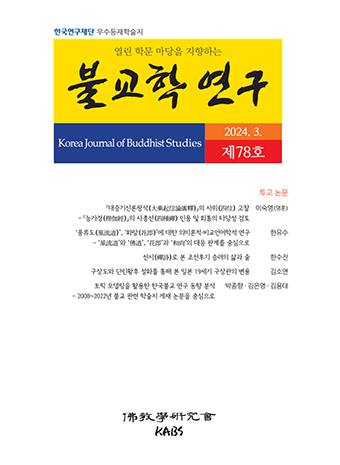Abstract
References
Sorry, not available.
Click the PDF button.
Information
This paper throws new light on the fifth precept (of prohibition of alcohol) and considers its application in modern life. To do so, the paper analyzes the fifth precept in Pāli etymologically and examines its two aspects: namely, avoidance (vāritta) and performance (cāritta). Although it is one the five precepts that lay practitioners as well as monastics must keep, its importance has been overlooked among Buddhists. The fifth precept in Chinese is “bù yǐn jiǔ jiè 不飲酒戒” which is usually worded negatively and prohibits only alcohol and liquor. On the contrary, the fifth precept in pāli is “Surāmerayamajja-pamādaṭṭhānā-veramaṇī-sikkhāpadaṃ samādiyāmi,” which means “I undertake the precept to refrain from fermented and distilled spirits and mind-altering intoxicants which lead to heedlessness.” In this way the actual pāli recitation mentions three kinds of intoxicants: sura (distilled liquors), meraya (fermented liquors), and majja (intoxicants). The word majja, meaning a mind-altering intoxicant, indicates not only is alcohol and liquor prohibited, but also intoxicating drugs used non-medicinally, such as opiates, opium, marijuana, and psychedelics, which cause heedlessness (pamāda). Like other precepts, the precept actually has two aspects, avoidance and performance. From this point of view, the original spirit of the precept is to prevent heedlessness caused by ingestingof intoxicating substances and to cultivate diligence (appamāda) which is emphasized in Theravāda Buddhist soteriology. The precept is central to the Buddhist practice (bhāvanā), as it sets the stage for a practitioner to live a considerate and mindful existence, one that is conducive to development of morality (sīla), concentration (samādhi), wisdom (paññā), and ultimately, nibbāna.
본 논문은 빨리 조문 불음주계를 새롭게 조망하고 이를 현대 사회에 어떻게 적용시킬 것인가를 모색한다. 이를 위해서 그것을 어원학적으로 분석하고서, 멀리함(vāritta)과 실행(cāritta)이라는 계의 두 가지 측면들로 나누어 고찰한다. 전통적으로 불음주계는 재가 신자가 일상생활에서 늘 지켜야 하는 5계(五戒, pañca-sīla) 가운데 하나임에도 불구하고, 오늘날에는 이 계의 중요성에 대한 인식이 불교인들 사이에서 부족한 실정이다. 한역 조문 ‘不飲酒戒’는 부정적으로 언급되며 오직 알코올과 술만을 마시지 말라고 한다. 반면에 빨리 조문 불음주계는 “수라메라야맛자 빠마닷타나 웨라마니 식카빠담 사마디야미(Surāmerayamajja-pamādaṭṭhānā- veramaṇī-sikkhāpadaṃ samādiyāmi)”로서, “(나는) 방일의 원인이 되는 증류주, 발효주, 환각성 물질을 멀리하는 계를 수지하겠습니다.”라고 일반적으로 해석된다. 이와 같이 빨리 조문 불음주계는 수라(surā), 메라야(meraya), 맛자(majja)라는 세 종류의 취하게 하는 물질들을 언급하고 있다. 맛자(majja)라는 단어는 알코올과 술뿐만 아니라, 방일(pamāda)의 원인이 되는 마약, 아편, 마리화나, 대마, 각성제와 같이 의료 이외의 목적으로 쓰이는 환각성 물질들도 뜻한다. 다른 계들과 마찬가지로, 불음주계는 멀리함과 실행이라는 두 가지 측면들을 가지고 있다. 이러한 관점에서 볼 때, 불음주계의 근본정신은 취하게 하는 물질들을 섭취함으로써 생기는 방일을 방지하고, 테라와다 불교의 구원론에서 강조되는 불방일(appamāda)을 계발하는 것이다. 불음주계는 수행자가 사띠(sati)와 함께 하는 깨어있는 삶을 살도록 초석을 놓아주며, 도덕(戒, sīla), 집중(定, samādhi), 지혜(慧, paññā)의 삼학(三學, tisso sikkhā)을 계발하여 마침내 열반(涅槃, nibbāna)을 얻는데 이바지한다.
Click the PDF button.
- Publisher :Korean Association of Buddhist Studies
- Publisher(Ko) :불교학연구회
- Journal Title :Korea Journal of Buddhist Studies
- Journal Title(Ko) :불교학연구
- Volume : 43
- No :0
- Pages :245~268


 Korea Journal of Buddhist Studies
Korea Journal of Buddhist Studies






